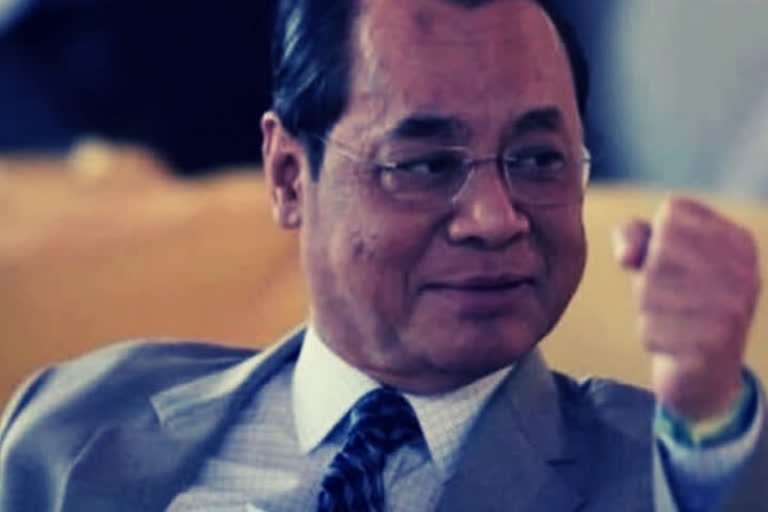New Delhi: While unprecedented times call for unprecedented responses, courts have to tackle the situation without compromising the basic rights and liberties of citizens, former Chief Justice of India (CJI) Ranjan Gogoi said on Friday.
Addressing a session on 'Cooperative Federalism and Role of Judiciary: A dynamic concept to manage and adjudicate disputes during COVID-19 Crisis' at a webinar organised by Bennett University, Gogoi, also a Member of Parliament, said the role of the judiciary in a crisis is that of a course corrector and an evaluator with a constitutional ethos as the guiding norms.
Also read: Maharashtra's COVID-19 tally crosses one lakh-mark
"The Indian judiciary has a rich legacy of exercising its constitutional authority to ensure the protection of basic rights. It has evolved various methods including that of continuous mandamus to issue directions in a variety of matters. Yet, in most cases where it has done so, it had the time to think and deliberate, to take on board varying viewpoints and engage with the vast amount of data to reach a studied response," said Gogoi.
"The pandemic situation takes away this luxury when in addition to long term response, short term responses are necessary which are often crafted on the go. So, while unprecedented times may call for unprecedented responses, the court must constantly endeavour to find balance and to work with the administration to tackle the fallout of crisis without compromising basic rights and liberties of the citizens," he said.
The webinar, organised by the varsity's Law School on the constitutional and legal challenges facing India in the backdrop of the pandemic, was inaugurated by Union HRD Minister Ramesh Pokhriyal 'Nishank'.
"In times like this, the concept of cooperative federalism must be extended to the functioning of the Supreme Court and the High Courts. Also, in times of pandemic, just as there has to be cooperation and unity of policy to the extent possible, between centre and states, so also it should be between Supreme Court and High Courts, an umbrella unitary policy with individual state issues being decentralised is the need of the hour," Gogoi added.
(PTI report)



